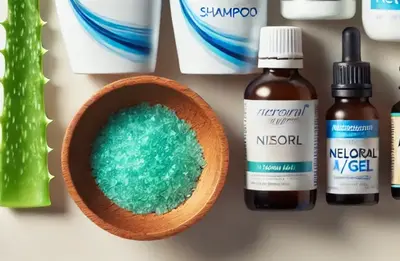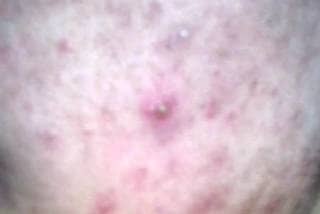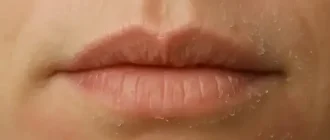Dandruff is a common scalp condition that causes flakes of skin to appear in your hair. It can be mild and manageable or persistent and frustrating. Understanding its causes and symptoms will help determine if you have dandruff or another scalp issue.
Effectiveness of Anti-Dandruff Shampoos (Reduction in Flaking %)
| Shampoo | Reduction in Flaking (%) |
|---|---|
| Head & Shoulders | 60% |
| Nizoral A-D | 75% |
| Selsun Blue | 68% |
| Neutrogena T/Gel | 72% |
| Dove Dermacare | 55% |
This chart compares the effectiveness of different anti-dandruff shampoos in reducing flaking. Nizoral A-D shows the highest effectiveness, while Dove Dermacare has the lowest.
Common Symptoms of Dandruff
Wondering if those white flakes on your shoulders are dandruff? Here are some telltale signs:
- White or yellow flakes on the scalp, hair, or clothing. These flakes may be fine and powdery or larger and more noticeable. If the flakes are greasy and stick to the scalp, they may indicate seborrheic dermatitis rather than simple dandruff.
- Itchy scalp that worsens in dry conditions. The itching is usually mild to moderate but can become severe if left untreated. Scratching excessively can lead to further irritation and, in some cases, small sores or scabbing on the scalp.
- Redness and irritation on the scalp. The scalp may appear inflamed, especially in areas where the flakes are concentrated. This redness is often a sign of an underlying issue, such as fungal overgrowth or sensitivity to hair products.
- Oily or dry scalp—dandruff can be linked to both. An excessively oily scalp often leads to larger, clumped flakes that stick to the hair, while a dry scalp produces finer, more powdery flakes that fall onto clothing.
- Increased flaking during seasonal changes. Many people notice dandruff worsening in winter due to indoor heating drying out the scalp, while summer humidity can sometimes exacerbate fungal-related dandruff.
What Causes Dandruff?
Dandruff isn’t just about poor hygiene—it’s caused by several factors, including:
- Seborrheic Dermatitis – A condition that makes the scalp greasy, red, and flaky. It is often accompanied by itchiness and increased oil production, leading to a breeding ground for Malassezia yeast. This condition can appear not only on the scalp but also on oily areas of the body, such as the eyebrows, sides of the nose, and behind the ears.
- Malassezia – A yeast-like fungus that feeds on scalp oils and can trigger dandruff. While it is a natural part of the skin microbiome, an overgrowth can cause inflammation, leading to excessive flaking and irritation. Certain factors, such as hormonal changes, stress, and humid environments, can contribute to its proliferation.
- Dry Skin – More common in winter, leading to smaller, less oily flakes. People with dry skin often experience tightness and mild irritation, which can make dandruff symptoms worse. Unlike dandruff caused by excessive oil production, dry skin-related dandruff tends to produce finer and less greasy flakes.
- Product Buildup – Residue from hair products can cause irritation and flaking. Overuse of styling gels, hairsprays, and certain conditioners can clog hair follicles and disturb the scalp’s natural balance. This can lead to an increase in flakiness, often confused with dandruff. Clarifying shampoos and regular cleansing can help prevent this issue.
- Skin Conditions – Eczema and psoriasis can mimic dandruff symptoms. These chronic skin conditions cause excessive cell turnover, leading to thicker, scaly patches that are often itchy and inflamed. Unlike regular dandruff, these conditions may require medical treatment, such as prescription topical steroids or medicated shampoos, to control symptoms effectively.
Common Causes of Dandruff (% of Cases Related to Each Cause)
| Cause | % of Cases |
|---|---|
| Malassezia Overgrowth | 50% |
| Seborrheic Dermatitis | 30% |
| Dry Scalp | 10% |
| Product Buildup | 5% |
| Other Factors | 5% |
This chart highlights the most common causes of dandruff, with Malassezia overgrowth being the leading factor, followed by seborrheic dermatitis.
How to Differentiate Dandruff from Other Scalp Conditions
Dandruff can be confused with other scalp problems. Here’s a quick comparison:
| Condition | Flakes | Itchiness | Scalp Condition |
|---|---|---|---|
| Dandruff | White/yellow, loose | Mild to moderate | Oily or dry |
| Dry Scalp | Small, white, dry | Mild | Dry, tight |
| Psoriasis | Thick, silver scales | Intense | Red, inflamed |
| Seborrheic Dermatitis | Greasy, yellow flakes | Severe | Red, irritated |
How to Treat Dandruff
Dandruff treatments vary based on the cause and severity of symptoms. Here are some of the most effective treatment options:
Over-the-Counter (OTC) Shampoos
Several anti-dandruff shampoos contain active ingredients that help control flaking and irritation:
- Ketoconazole (Nizoral A-D) – A powerful antifungal agent that reduces yeast-related dandruff.
- Selenium Sulfide (Selsun Blue) – Slows skin cell turnover and reduces Malassezia growth.
- Zinc Pyrithione (Head & Shoulders Clinical Strength) – Has antifungal and antibacterial properties to control mild dandruff.
- Coal Tar (Neutrogena T/Gel) – Helps slow down excessive skin cell production, effective for chronic dandruff.
- Salicylic Acid (Neutrogena T/Sal) – Gently exfoliates the scalp to remove flakes and prevent buildup.
How to Use Anti-Dandruff Shampoos Correctly
For best results, follow these steps:
- Apply to a wet scalp – Focus on the roots rather than just the hair.
- Massage gently – Allow the shampoo to sit for at least 3-5 minutes.
- Rinse thoroughly – Remove all shampoo to prevent residue buildup.
- Use consistently – Most anti-dandruff shampoos work best when used 2-3 times per week.
Home Remedies and Lifestyle Changes
Some natural remedies may help alleviate dandruff symptoms:
- Tea Tree Oil – Has antifungal properties and can be diluted with a carrier oil before application.
- Aloe Vera – Helps soothe scalp irritation and reduce inflammation.
- Apple Cider Vinegar – A diluted rinse can help balance the scalp’s pH and reduce fungal growth.
- Dietary Changes – Eating foods rich in zinc, omega-3 fatty acids, and probiotics may help maintain scalp health.
- Stress Management – High stress can trigger dandruff, so relaxation techniques may be beneficial.
When to See a Doctor
If dandruff persists despite treatment, it may be time to consult a dermatologist. Seek medical help if you experience:
- Extreme itching or burning that persists despite treatment.
- Thick, scaly patches that may spread beyond the hairline.
- Hair loss, which can be temporary or indicate a more serious condition.
- Symptoms spreading beyond the scalp, including redness or irritation on the face, neck, or ears.
- Persistent discomfort that affects daily life and requires medical intervention.
Editorial Advice
Reyus Mammadli, healthcare advisor, emphasizes that while dandruff is common, persistent flaking and irritation could indicate underlying scalp conditions. “If over-the-counter treatments don’t help after a few weeks, consult a dermatologist to rule out other issues,” he advises.
Staying consistent with scalp care and choosing the right shampoo can significantly improve dandruff symptoms. Remember, a well-balanced diet and stress management also play key roles in maintaining scalp health.
Impact of Diet on Dandruff (% Improvement with Nutritional Changes)
This chart illustrates the impact of dietary changes on dandruff improvement. Increasing Omega-3 intake provides the highest benefit, while reducing sugar and increasing hydration also contribute to reducing dandruff symptoms.
About the Author
Reyus Mammadli is the author of this health blog since 2008. With a background in medical and biotechnical devices, he has over 15 years of experience working with medical literature and expert guidelines from WHO, CDC, Mayo Clinic, and others. His goal is to present clear, accurate health information for everyday readers — not as a substitute for medical advice.







